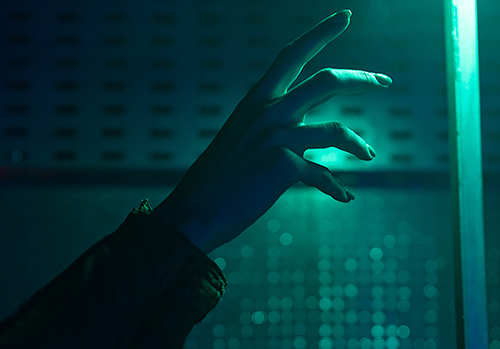
Photograph by Mikhail Nilov on Pexels
Turning Off Your Wi-Fi at Night
Nearly every modern home has some form of Internet connection, and many use Wi-Fi to be able to access the world wide web. Wi-Fi is “a wireless networking technology that uses radio waves to provide wireless high-speed Internet access.” Most people who have Wi-Fi in their homes keep the Wi-Fi switched on 24 hours a day non-stop for the whole year, even at night when household members are all asleep, and no one is using Internet access. Should we be turning off our Wi-Fi at night?
How does Wi-Fi work?
Wi-Fi uses radio waves to transmit information through frequencies between a router and a device such as a mobile phone or desktop computer. So, the wireless network technology equipment emits radiofrequency electromagnetic fields (EMF). The process begins when a user accesses the Internet and requests information like opening a webpage. Using the Internet converts the information into a binary code, a series of 1s and 0s. This language is how computers communicate with one another. When using Wi-Fi, the 1s and 0s translate into wave frequencies by the Wi-Fi chip embedded in your device. The frequencies then move across radio channels and are received by your router connected to your device. The router translates the frequencies back into binary code and transforms the code into the Internet traffic you requested, and the router takes in that data via a hardwired Internet cable. The activity repeats until you have loaded the webpage.
Why should I turn off Wi-Fi?
The American Sleep Association says that approximately 70 million Americans suffer from a sleeping disorder, and many suffer from insomnia. Surely, researchers are curious about why so many people have problems sleeping.
Professional researchers have conducted numerous studies on electromagnetic frequencies and examined how they have the potential to be harmful. Some researchers are discovering that having a Wi-Fi router switched on at night may cause insomnia. A 2012 study found that the pineal gland, which develops the sleep-aiding hormone melatonin, misinterprets the blue light from electronic devices as natural light. Therefore, the pineal gland fails to make enough melatonin, and the sleep-wake cycle is disrupted. The impact can be especially harmful to those who work night shifts. Nearly a decade ago, in 2014, scientists examined data on the effect of electric, magnetic, and electromagnetic fields on melatonin and cortisol rhythms that affect the circadian system. Their research led them to conclude that EMF radiation may impact the circadian rhythms hormones and affect when a person wakes up from sleep.
Electromagnetic field exposure can do more than impact sleep quality. A 2018 cross-sectional study examined how extremely low-frequency electromagnetic fields (ELF-EMF) influenced stress, depression, anxiety, and sleep quality among power plant workers. A total of 275 individuals participated in the study, with 132 subjects in the exposed group and 143 participants in the unexposed group. Researchers found the “exposed group experienced significantly poor sleep quality than the unexposed group.” Also, the scientists witnessed depression was “more severe” in the exposed group. An increase in anxiety and stress was also more evident in the exposed group.
Got Medicare Questions?
We hope that this information on turning off Wi-Fi at night is useful to you.
Let us help you answer your questions so that you can get back to the activities that you enjoy the most.
Call (888) 446-9157, click here to get an INSTANT QUOTE, or leave a comment below!
See our other websites:

